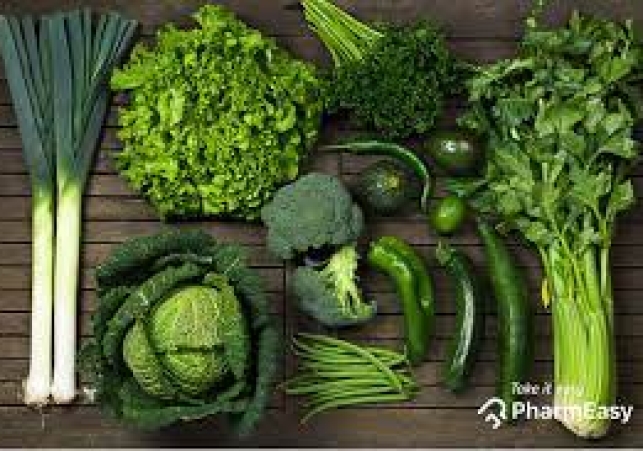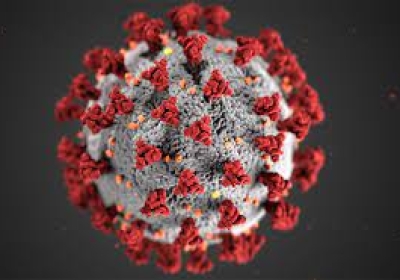Know your Leafy Greens


Want to add green leaves to your diet, but all that comes to your mind is spinach? Well, a wide range of green leafy vegetables like kale, mustard greens, cabbage, coriander leaves, fenugreek leaves, moringa leaves, amaranth leaves, etc. are available for consumption in various forms. So you can relish different flavours of these leaves and microgreens by incorporating them in different dishes as per your taste and choice.
Nutritional Content of Green Leafy Veggies
- Packed with Vitamins– All leafy greens have an abundant store of nature’s vitamins. However, kale, spinach, moringa, and cabbage are known for their superior vitamin content. You get a good amount of vitamin A, vitamin K, vitamin E, vitamin C, beta-carotene, folate, vitamin B1, B2, B3, B5 and, B6 from these vegetables.
- High mineral content– Minerals like iron, magnesium, potassium, zinc, calcium, phosphorus, and sodium can be added naturally to your diet by eating green leafy veggies. They help to maintain the daily requirement and overcome the deficiency of dietary minerals by providing an adequate amount of minerals in every bite.
- Rich in dietary fibers– Green leaves have good fiber content which makes you feel satisfied after you consume them. Fiber also provides various other health benefits.
- Low-fat content– These leafy greens save you from consuming fats and lipids as they have nearly zero fat content.
Recommended intake of Green Leafy Vegetables
| Children | 50g/day |
| Adult Women | 100g/day |
| Adult Men | 40g/day |
Tips to increase intake
You may not always like your green leafy vegetables the way they are, but consuming them is very important for our well-being. Hence to make your healthy meals a little more interesting, here are some tips to increase the intake of these vegetables:
- Add a little greenery to your eggs! You can always add some of your favourite veggies to your scrambled eggs or omelette.
- You can fill your sandwich and wraps with fresh leafy vegetables. Better yet, you can use veggies like lettuce as the wrap itself! Hummus and avocado can be good fillers for this healthy snack.
- When you are cooking some veggies, just toss in some fresh green leafy vegetables and cook them to a stir-fry. This beats having the vegetables raw.
- Smoothies may not sound as the most enticing avenue into getting introduced to leafy vegetables. However, adding the ones like kale and spinach to a fruit smoothie can be harmless, as you won’t be able to smell.
- If you are about to enjoy a warm bean or lentil soup, you can add some leafy greens to the bowl!
Health Benefits of Green Leafy Vegetables
These veggies should be a compulsory part of your routine diet. They play an important role by helping you to recover from certain health conditions and illnesses like poor eyesight, mineral deficiencies, poor immunity, constipation, and even certain heart diseases. Leafy green vegetables help with your daily nutrient intake because they contain a multitude of macro and micronutrients that are necessary for the body. Similarly, here are some more health benefits of adding leafy greens to your regular diet.
- Calories
One of the biggest benefits of consuming leafy green vegetables is that they are extremely low in calories when compared to other foods. Despite being low in calories they are often dense in nutrients, which is why they are a preferred food item in a weight loss diet.
- Vitamin K
Leafy green vegetables are added to a weight loss diet because they contain a nutrient known as Vitamin K. This fat-soluble vitamin is extremely helpful in stimulating weight loss. Moreover, recent research also suggests that Vitamin K can help reduce inflammation, help combat diabetes, helps reduce plaque formation in the arteries, and can even help delay the onset of bone ailments like osteoporosis.
- Disease Prevention
Since leafy green vegetables are full of vitamins and minerals that are needed to both boost the immune system as well as maintain an overall healthy body, they have been known to help prevent certain diseases as well. For example, mineral deficiencies like iron deficiency (anaemia), poor eyesight, weight troubles, signs of ageing, poor immunity, constipation, blood clotting, folate deficiency, weak bones, cancer, heart diseases, and high cholesterol.
- Macronutrients
While leafy green vegetables may only be popular for being sources of vitamins and minerals (micronutrients), many of them even have sufficient quantities of macronutrients as well. Some leafy green vegetables have complex carbohydrates, fibre, protein, and even minute traces of fat. For example, spinach being a classic dark green leafy vegetable provides 1 g of carbohydrate and 1 g of protein in each cup of serving.
- Micronutrients
Green leafy vegetables are best known for being rich sources of micronutrients and this is one of the reasons most people do not add them sufficiently to their daily diet. Although micronutrients may be required in lower quantities in the body, they play a major part in helping boost the immune system and several other functions of the body. Green leafy vegetables contain essential micronutrients like beta-carotene, lutein, and zeaxanthin. These can help prevent damage to the cells of our body and even enhance eyesight.
Apart from these, green leafy vegetables are highly effective and beneficial for healthy skin and hair.
Cooked v/s Uncooked Greens
There has been a lot of discussion and research on the change in the nutritional makeup of leafy vegetables after cooking. Studies suggest that there is a considerable loss in the number of vitamins and minerals after cooking. If you want to utilize the maximum amount of nutrients from these veggies you should eat them uncooked. Many people love to consume these greens in the form of salads, green smoothies, and juices, as they not only provide you with abundant nutrition but also save you from the additional oil and spices added to your greens while cooking. This makes a good anti-inflammatory diet.
Ask your doctor
- If you suffer from kidney or any other oxalate stone, you should avoid too much spinach as it contains a high amount of oxalate.
- If you are on anticoagulants or blood thinners, consult your doctor regarding the consumption of leafy greens as they contain a high amount of Vitamin K which aids in blood clotting.
Green leafy veggies make an important component of a balanced diet. Eat them as you like -Chop them in your salads, add them to your smoothies, stuff them in your wraps and sandwiches or cook them with your favourite flavours, but don’t forget to consume them in some or the other way daily to keep your body healthy and glowing.










